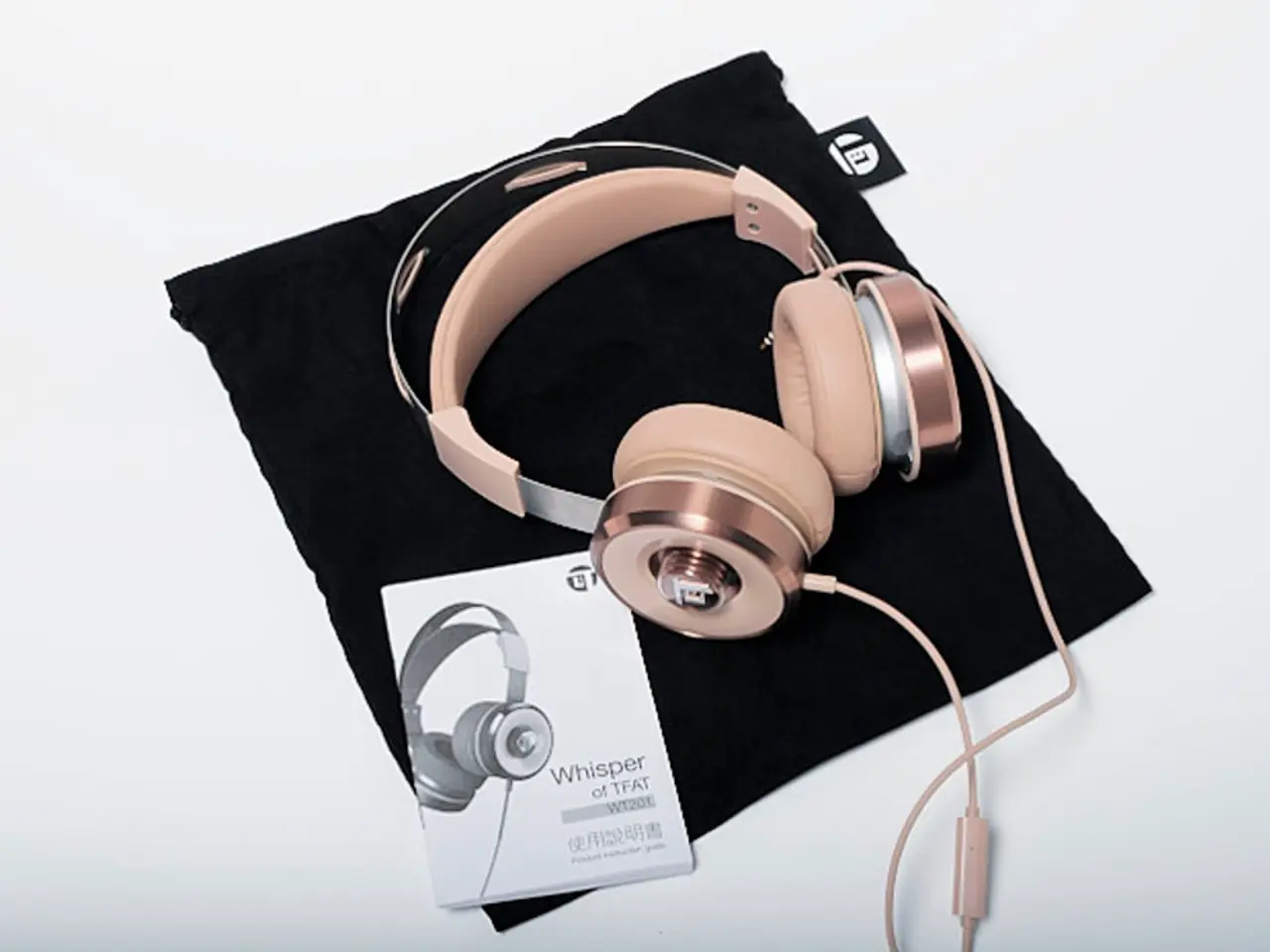areANC Headphones a worthwhile investment? A comprehensive examination of Active Noise Cancellation technology in headphones
# Pros and Cons of Active Noise Cancelling (ANC) Headphones vs. Regular Headphones
In the realm of personal audio devices, the choice between Active Noise Cancelling (ANC) headphones and regular headphones can be a significant one. Here's a breakdown of the advantages and disadvantages of each.
## ANC Headphones
### Pros
**Effective Noise Reduction:** ANC headphones excel at reducing constant, low-frequency ambient sounds such as airplane hum, train rumbles, and office air conditioning. This feature can greatly enhance the listening experience, particularly in noisy environments.
**Lower Listening Volumes:** Because external noise is suppressed, you don’t need to turn up the volume as high to hear your music or calls, potentially protecting your hearing over time.
**Improved Focus and Comfort:** Especially useful in noisy environments, ANC can help you focus and reduce fatigue during long listening sessions.
**Advanced Features:** Many ANC models offer customizable sound, adaptive noise cancellation (which adjusts based on your environment), and additional tech like transparency modes.
**Comfort for Some:** Over-ear models with good ANC can provide a noticeable "sonic cocoon" effect, making them comfortable for extended use.
### Cons
**Not Perfect:** ANC cannot block all noise—sudden, loud, or high-pitched sounds may still be heard, and performance varies by headphone model.
**Cabin Pressure Sensation:** Some users experience an uncomfortable "pressure" or "underwater" feeling in their ears when ANC is active.
**Awareness Risk:** Strong noise reduction can make it harder to stay aware of your surroundings, potentially creating safety concerns.
**Battery Dependent:** ANC headphones require power, so you must keep them charged; using ANC drains the battery faster than regular headphones.
**Cost:** ANC models are typically more expensive than regular headphones.
**Fit Matters:** Effectiveness depends on how well the headphones fit—poor fit can reduce noise isolation and ANC performance.
## Regular Headphones (Without ANC)
### Pros
**No "Cabin Pressure":** Users do not experience the sensation of pressure that some report with ANC headphones.
**No Battery Drain:** No need to worry about charging just for noise cancellation.
**Simpler and Cheaper:** Generally less expensive and simpler to use, with no need for advanced electronics or charging.
**Better Situational Awareness:** You’re more likely to hear environmental sounds, which can be a safety benefit in certain situations.
### Cons
**Limited Noise Reduction:** Only passive noise cancellation (physical isolation) is available, which is less effective at blocking low-frequency, constant noises.
**Higher Listening Volumes:** In noisy environments, you may need to increase volume to compensate for ambient sounds, potentially increasing the risk of hearing damage over time.
**Less Advanced Features:** Fewer tech features compared to ANC models (e.g., no adaptive cancellation, transparency modes, etc.).
**Variable Comfort:** Poorly designed models may be uncomfortable for long sessions, and fit issues can reduce passive isolation.
## Comparison Table
| Feature | ANC Headphones | Regular Headphones | |------------------------------|----------------------------------|----------------------------------| | **Noise Reduction** | Excellent (esp. low frequencies) | Limited (passive only) | | **Listening Volume** | Lower (less risk to hearing) | May be higher (more risk) | | **Comfort** | Varies (can be great) | Varies (can be problematic) | | **Battery Life** | Required (ANC drains battery) | Not required | | **Added Features** | Often many (adaptive, etc.) | Fewer | | **Cost** | Higher | Lower | | **Situational Awareness** | Reduced | Better |
## Summary
ANC headphones are ideal for frequent travelers, commuters, and those working in noisy environments, offering advanced noise reduction and potential hearing protection through lower listening volumes. However, they are more expensive, depend on battery life, and some users may find the ANC sensation uncomfortable or miss environmental cues.
Regular headphones are simpler, cheaper, and may offer better situational awareness, but struggle to block out persistent, rumbling background noise, often requiring higher volumes that could risk hearing over time.
Fit and personal preference are crucial—no single type is best for everyone, so consider your environment, comfort, and hearing habits when choosing. It's always recommended to try a pair of headphones before purchasing to experience the sound quality and comfort firsthand. Additional features to consider include microphones for taking calls, touch controls, or built-in voice assistants. Some ANC headphones come with additional features such as voice enhancement or echo cancellation, further improving the clarity of phone conversations.
- If you're looking for a device that offers a wide array of advanced features, such as adaptive noise cancellation and transparency modes, you might want to consider gadgets with technology that includes Active Noise Cancelling (ANC).
- When it comes to the sound quality in noisy environments, technology like Active Noise Cancelling headphones is particularly effective at reducing constant, Low-frequency ambient sounds like airplane hum or office air conditioning, enhancing the listening experience.




